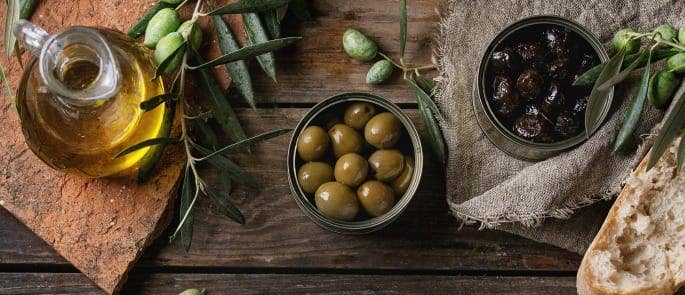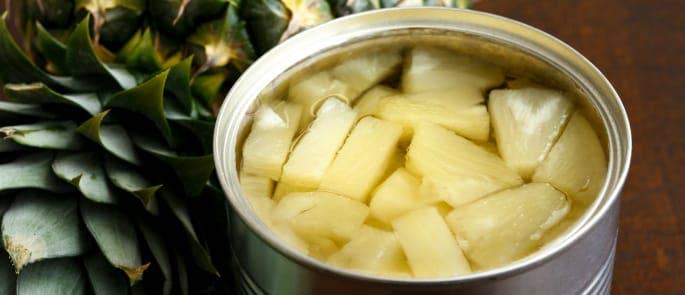Should I Store Open Food Cans In The Fridge?
Is it Safe to Store Open Tin Cans in the Fridge?
In short, it’s kind of up to you. Storing open food cans in your fridge won’t cause food poisoning or botulism, but it will affect the taste. The only time you could get food poisoning is if the can shows tangible signs of damage like foul-smelling contents, dents, leaks or bulges. Canned food goes through rigorous safety procedures and checks, and it’s unlikely that food inside is spoilt.

Why Storing Open Food Cans Affects The Taste
The cans used for food packaging are made of tinplate or aluminium. Over time a minimal amount of metal transfers into the food contents. This seems to increase when oxygen is introduced after opening. It’s not harmful, though, it just tastes weird.
Once you open a tin and introduce oxygen, the food takes on a tinny taste. Storing the food contents in a glass, plastic, or ceramic container and putting it into the fridge prevents further transfer and stops taste spoilage. Canning methods mean that some metal naturally dissolves into food, yet there’s strong evidence to suggest that there’s no significant level of toxicity for human consumption.

If the content is highly acidic, like grapefruit, the combination of acidity and oxygen creates a reaction that coats the tin with a grey-black material. This material can chip off into your food. It’s unsightly, but it isn’t going to hurt you. To prevent it, all you need to do is to store your grapefruit segments in a bowl or suitable storage container.
Want to Learn More?
Our Online Food Hygiene Training is designed to ensure a comprehensive knowledge of all food safety and hygiene procedures. Find everything from Level 2 Food Hygiene & Safety for Catering to HACCP.
The Botulism Myth
There seems to be a myth that open tins in the fridge cause botulism, but it isn’t true.
Botulism is a rare & life-threatening condition caused by Clostridium Botulinum bacteria. These toxins attack the nervous system causing paralysis. But, a little anecdotal research quickly clears this myth up. Think of all the students the world over putting cans of beans in the fridge for days, even weeks on end.

Botulism can be food-borne; food-borne botulism happens when someone eats food that hasn’t been canned, preserved or cooked and contains the botulism toxins. The bacteria that causes botulism is found in soil, dust, river, and sea sediments. When these sediments are deprived of oxygen, they emit highly poisonous toxins. So if the food canning safety procedures have not been rigorous, sediment can produce this toxin.
It’s highly unlikely that you’ll get botulism in the UK because food hygiene levels are so strict! The risk is higher, though, if you grow your own food – especially if you can your own food. However, following food hygiene and canning procedures can prevent it.
Further Resources
- Do You Know Which Fridge Shelves You Should Store Your Food On?
- 10 Tips for Storing Fruit and Vegetables
- How to Reduce Food Waste at Home
- Level 2 Food Hygiene for Catering Course











